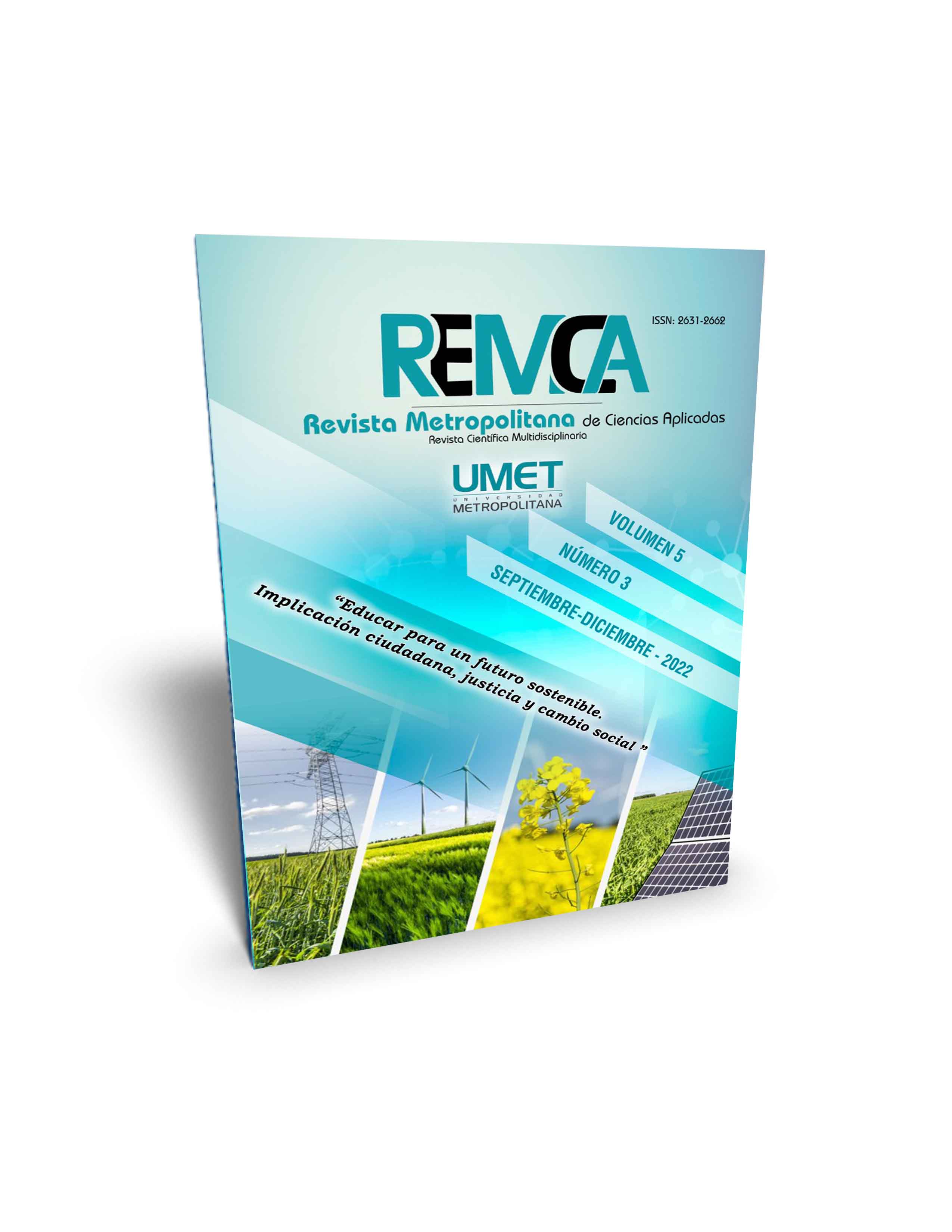Emerging technologies in preschool and their impact on the post-confinement Covid-19 teaching and learning process
DOI:
https://doi.org/10.62452/w7vczw86Keywords:
Preschool, hybrid modality, teaching competenceAbstract
The COVID-19 confinement has generated the need for education to be carried out in a hybrid way. The hybrid modality has been presented at all school levels and the preschool level was not left out of this modality. Due to the above, it has been reviewed how the hybrid modality for the education of preschoolers has had an impact on their teaching and learning processes, taking care above all of the provisions of the Ministry of Public Education (SEP) in its document Key Learnings and where it is stated that attending a quality preschool education positively influences their life and their performance during the first years of primary education by having positive effects on cognitive, emotional and social development, since the first five years of life are the fundamental basis since they form the basis for the development of intelligence, personality and social behavior.
Downloads
References
Adams Becker, S., Cummins, M., Davis, A., Freeman, A., Hall Giesinger, C., & Ananthanarayanan, V. (2017). NMC Horizon Report: 2017 Higher Education Edition. The New Media Consortium.
Álvarez Barraza, M. (2021). Experiencia con el uso de las TIC en preescolar durante la pandemia. En, J. A, Trujillo-Holguín, A. C., Ríos-Castillo, & J. L. García-Leos, (coords.), Desarrollo profesional docente: reflexiones y experiencias de trabajo durante la pandemia. (pp. 499-509): Escuela Normal Superior Profr. José E. Medrano R.
Bedford, J., Enria, D., Giesecke J., Heymann, D. L., Ihekweazu, C., Kobinger G., Lane H.C., Memish, Z. O., M, Alpha-Sall, A., Schuchat, A., Ungchusak, K., & Wieler, L. H. (2020). COVID-19: towards controlling of a pandemic. The Lancet, 395 (10229), 1015-1018.
Cob León, Y., & Xacur González, S. (2019). Uso de las TIC en la práctica docente de la educación preescolar. (Ponencia). 5 Congreso Nacional sobre Educación Normal. México.
Concari, S. (2014) Tecnologías emergentes ¿cuáles usamos? Lat. Am. J. Phys. Educ., 8(3), 494-503.
Escobar García, D. (2021). Saberes y prácticas pedagógicas de un grupo de maestras en el marco de la incorporación de TIC en Educación Preescolar: un estudio de caso colectivo en la ciudad de Medellín. (Tesis de Maestría). Universidad de Antioquia.
García-Zabaleta, E., Sánchez-Cruzado, C., Santiago Campión, R., & Sánchez-Compaña, M.T. (2021). Competencia digital y necesidades formativas del profesorado de Educación Infantil. Un estudio antes y después de la Covid-19. Edutec. Rev Elec Tec Ed, (76), 90-108.
México. Secretaría de Educación Pública. (2017). Aprendizajes Clave para la Educación Integral Educación preescolar. Plan y programas de estudio, orientaciones didácticas y sugerencias de evaluación. SEP: https://www.planyprogramasdestudio.sep.gob.mx/descargables/biblioteca/preescolar/1LpM-Preescolar-DIGITAL.pdf
Organización Mundial de la Salud. (2020). Información sobre COVID-19. OMS. https://www.who.int/es/emergencies/diseases/novel-coronavirus-2019?adgroupsurvey={adgroupsurvey}&gclid=CjwKCAjwrNmWBhA4EiwAHbjEQ44nUk7GraV61YtDGKdScAyc-fxfUsTqwIqRPAs0_Mirzo4pD0l_hoCTDAQAvD_BwE
Ortega, J., Frucsio, M., López, D., & Gutiérrez, A. (2012). Tendencias emergentes en educación con TIC. Ed. Espiral.
Pandora FMS Monitoring Blog. (2022). Web 4.0. Find out all about it and how it will change the Internet. https:// pandorafms.com/blog/web-4-0/
Ríos Mejía, F. (2020). Programa educativo mediado por las TIC en el desarrollo de la motricidad en niños de 3 años, Rímac – Lima 2020. (Tesis de Doctorado). Universidad César Vallejo.
Villegas-Chiroque, M. (2020). Pandemia de COVID-19: pelea o huye. Revista Experiencia en Medicina del Hospital Regional Lambayeque, 6 (1).
Downloads
Published
Issue
Section
License
Copyright (c) 2022 Paola Cruz Peñafiel, Erika González Farfán, José Ramón Aguilar Martínez, Jorge Armando Manzano Martínez (Autor/a)

This work is licensed under a Creative Commons Attribution-NonCommercial-ShareAlike 4.0 International License.
Authors who publish in Revista Metropolitana de Ciencias Aplicadas (REMCA), agree to the following terms:
1. Copyright
Authors retain unrestricted copyright to their work. Authors grant the journal the right of first publication. To this end, they assign the journal non-exclusive exploitation rights (reproduction, distribution, public communication, and transformation). Authors may enter into additional agreements for the non-exclusive distribution of the version of the work published in the journal, provided that acknowledgment of its initial publication in this journal is given.
© The authors.
2. License
The articles are published in the journal under the Creative Commons Attribution-NonCommercial-ShareAlike 4.0 International License (CC BY-NC-SA 4.0). The terms can be found at: https://creativecommons.org/licenses/by-nc-sa/4.0/deed.en
This license allows:
- Sharing: Copying and redistributing the material in any medium or format.
- Adapting: Remixing, transforming, and building upon the material.
Under the following terms:
- Attribution: You must give appropriate credit, provide a link to the license, and indicate if any changes were made. You may do this in any reasonable manner, but not in any way that suggests the licensor endorses or sponsors your use.
- NonCommercial: You may not use the material for commercial purposes.
- ShareAlike: If you remix, transform, or build upon the material, you must distribute your creation under the same license as the original work.
There are no additional restrictions. You may not apply legal terms or technological measures that legally restrict others from doing anything the license permits.




